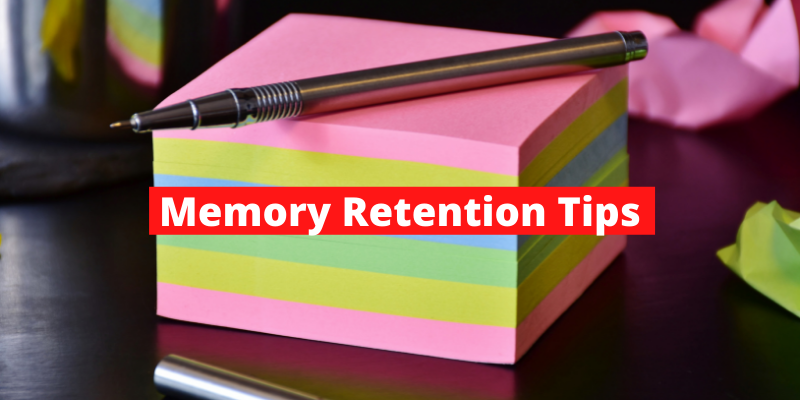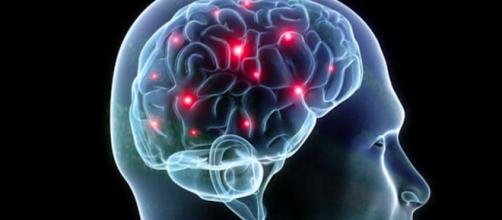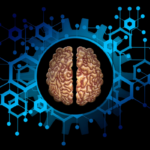Memory Retention Tips: 5 Techniques To Increase Memory Retention

Memory Retention Tips: Introduction
When it comes to improving our brain power, far too many of us think in terms of total transformation. We want to improve our IQ or our attention and we want to ‘level up’ as if we were a Pokemon or a Dragon Ball Z character.
“It’s more than 9,000!”
It’s certainly possible to boost one’s IQ with nootropics and brain training, for what it’s worth. And, with enough brain training, we might be able to improve our attention slightly.
But that isn’t the only way to boost your brain power and it’s certainly not the most practical.
Instead, I invite you to think of your brain in terms of its skill set. Skills include specific knowledge, techniques and abilities that can enhance our ability to use our brains
practically. A skill might be the ability to think in another language, it might be ambidexterity, it might be speed reading, it might be visualization or it might be memory techniques.
In these scenarios, you are not ‘smarter,’ but you do have the option to use skills that will help you be more productive and creative.
Developing a perfect memory is something that anyone can strive for, and it has a plethora of practical advantages in real life situations. Continue reading to learn about some of the most effective methods for improving your ability to retain information.
Memory Retention Tips: Brain Training Can Help You Improve Your Memory
If you want to improve your memory, you can do so using a variety of techniques.
One possibility is to use brain training. And here is one strategy that stands out from the crowd…
‘Dual N Back’ training is an exercise that entails watching letter or number sequences and identifying when there is a repetition. The ‘N’ here represents how many steps back you are looking, and the more information you need to retain, the more difficult it becomes.
The ‘dual’ aspect indicates that you are looking for repetitions in two distinct streams of stimuli.
This is the only type of structured brain training that has been consistently supported by research as a means of improving not only working memory but also fluid intelligence and attention.
But this is where you need to be a little more picky. The value of improving your working memory is debatable, and the amount of effort required to see results is significant.
Working memory is the type of memory that we use when carrying numbers during mental arithmetic and how we remember phone numbers briefly while looking for a pen.
Working memory is thought to have a span of 7 +/- 2, meaning it can go as high as 9 and as low as 5.
There are very few situations in which increasing working memory by a mere two digits would be beneficial, and instead the emphasis should be on converting working and short term memories to long term memories.
Dual N Back can help you better juggle information and focus on the data that will eventually be transferred to longer term storage in the hippocampus and can help you to better juggle information and focus on the data that will eventually be transferred to longer term storage in the hippocampus.
Working memory can thus be a useful skill to cultivate alongside others, and it will aid in memory retrieval. However, after a certain point, dual n back will provide diminishing returns.
Memory Retention Tips: Making Use Of Nootropics
The use of nootropics can be beneficial. Acetylcholine is by far one of the most popular nootropics for memory enhancement.
This is a key excitatory neurotransmitter that, like nicotine and some other substances, has been shown in numerous studies to aid in the formation of long term memories.
Finally, any nootropic that improves long term memory formation and long term potentiation by increasing neuroplasticity via BDNF or other factors. These include lion’s mane mushroom and magnesium threonate, among others.
But which “nootropic” is the most effective for improving brain function? That is, by far, sleep, which can assist you in storing more memories and improving your focus.
Memory Retention Tips: Attention and Focus
The strong link between attention and memory in general is worth considering. Of course, in order for stimuli to be encoded as memory, you must be attentive to them, so any nootropic that increases dopamine or other catecholamine neurotransmitters (serotonin, histamine, epinephrine, norepinephrine) could have this effect. Perhaps the most exciting example of this can be found in ‘flash bulb memories.’
We have incredibly vivid memories of shocking events, and we often remember very specific details of our surroundings and circumstances when we got married, divorced, or first saw the 9/11 attacks on the news.
This could be due to increased rehearsal of these important memories, but it is also likely due to the increased attention we would have given those moments due to dopamine and other chemical increases.
Training your attention and focus is therefore an excellent way to improve your memory and recall. You could try meditation or the aforementioned dual n back to accomplish this. Making the memory more interesting and engaging can also help.
Memory Retention Tips: Memory Storage
However, improving your ability to use the memory you already have may be the best way to improve your long term memory storage.
Memory masters are people who compete in memorizing the orders of packs of cards and other memory feats. To do so, they employ a variety of techniques and mnemonics to improve their information categorization and retrieval.
But, once again consider the context. You probably don’t need to memorize a deck of cards and you’ll benefit more from learning dynamic information, facts and skills.
One method is to use the ‘memory palace’ technique. This makes use of our strong visual memories to remember lists of objects, important facts and other information.
The technique, which was popularized in the BBC series Sherlock, involves visualizing a real or imagined location and then visualizing specific cues in specific locations around that visualized location.
This is related to the “method of loci,” which indigenous tribes and early man used for hundreds of years. Before the printing press or the internet, this technique was used to help store large amounts of information within a culture.
This method is similar to using rooms or locations within a building, but it focuses on a specific path. Sages would memorize routes in their local area, visualize them and place memories at specific landmarks along the way.
This technique is extremely effective because it capitalizes on the brain’s proclivity for learning navigation – something that has far more survival value in historical and evolutionary terms than dry facts!
You probably know how to get from your house to work, so why not visualize it and create images in your mind’s eye along the way to help you remember things? This method can be used to memorize and recite entire text passages!
Memory Retention Tips: Spaced Learning
‘Spaced learning’ is a very useful tool for revising a subject. This method entails learning for three 15 minute blocks, with two ten-minute breaks in between that include ‘distractor activities.’ This reinforces the ideas and then requires you to retrieve them just as they are about to leave short term memory.
This appears to work so well because it allows you to “hack” the brain’s learning mechanisms so that you can rehearse different facts and ideas after what the brain perceives as a period of absence.
This has the effect of rehearsing the same subject many times rather than just once but for a longer period of time. As a result, there is more brain rewiring, more neurochemical activity and faster long term potentiation (a fancy term for the formation of new connections within the brain).
But what is the most effective way to improve your memory? Use all of these methods in tandem. Improve your focus and working memory so that you can pay more attention to the information you’re trying to learn.
Use nootropics to improve brain health and then use memory palaces and spaced learning to help cement various types of information.
But what is the most important takeaway from this? Stop attempting to ‘improve memory’ across the board, stop attempting to ‘increase IQ’ and don’t be concerned about attention. Instead, consider your goals and the cognitive skills that will help you achieve them. Then concentrate on the specific training, nutrition and nootropics that will assist you in reaching your goals.




